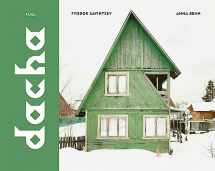
Dacha: The Soviet Country Cottage
Book details
Summary
Description
An astonishing photographic record of a form of wooden architecture rapidly vanishing from the post-Soviet landscape
A dacha is a country house, made of wood, used by Soviet citizens to escape the rigors of the city for a rural idyll. Widespread in the countries of the former USSR, this important cultural and architectural form has been largely ignored academically. In Dacha, Fyodor Savintsev documents this particularly Russian phenomenon. His photographs constitute a unique record of a rapidly vanishing fairy-tale wooden world.
The word "dacha" has been used to describe constructions ranging from grand imperial villas to small sheds. Originally bestowed by the Tsar to reward courtiers, this custom continued following the revolution, with Soviet cooperatives building dachas for their members. Supposedly for the benefit of laborers, in reality they were destined for those favored by the State, including famous writers, architects and artists from Pasternak to Prokofiev. The fall of the Soviet Union accelerated their use, as economic uncertainty forced city dwellers toward self-sufficiency.
The dacha tradition has survived revolution, war and the collapse of Communism, becoming an integral part of life in the process. Using contemporary photographs to showcase these uniquely individual buildings for the first time, alongside an introduction explaining their historical and cultural context, Dacha is the only publication of its kind.


We would LOVE it if you could help us and other readers by reviewing the book
Book review



